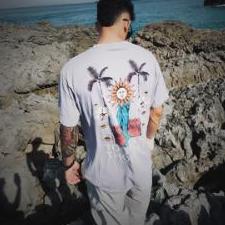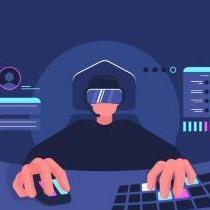The president of Venezuela and candidate for re-election, Nicolás Maduro , warned that he is willing to take up arms if "someday" a government comes to power that "intends to deliver the country's riches" to the "gringos", while its rivals They continued submerged in the campaign for the questioned elections scheduled for May 20.
"And if some day a government arrives that intends to deliver the riches, I would be the first to give a shout and take a rifle to make armed revolution with the people if necessary." He would be the first one who would do it and call the people to arms, I would do it, because here there is dignity, "he said Wednesday night in a campaign for the presidential elections.
From the coastal center state of Vargas, Maduro said that the country must be defended and that "nobody can believe with the power to offer the riches of Venezuela to the gringos". He added: "I refuse, I refuse a thousand times."
At the same time, he accused the opposition candidate Henri Falcón of wanting to deliver the country to "the gringos" and the "European oligarchies". And he asked his supporters to "join forces" to "defend" the country.
See also: Elections in Venezuela: "The international community will not recognize a triumph of Maduro"
In that sense, he again asked the po[CENSORED]tion to give him 10 million votes in the upcoming elections and urged him to support it with rallies to give a "response in the streets."
Look also: Europe threatens more sanctions against Venezuela because of the elections
Maduro also reiterated that he does not care if he is recognized by Europe or the United States if he wins the presidential elections again and only gives importance to what his people say.
"There the oligarchs are excited because they go to Europe, because the oligarchs are in Washington (saying) 'Maduro is not going to recognize him in the world', what the hell do I care," he said.
Look also: Between the discouragement and the economic crisis, the campaign in Venezuela starts
He added: "If the noble people of Venezuela recognize me, what the hell do I care what Europe says, what the [CENSORED] I care what Washington says".
In the presidential elections of May 20 will not participate the largest alliance of opposition parties, the Democratic Unity Table (MUD), considering that the conditions for these elections are not fair or transparent .
That is why the international community - the Lima Group, in America, Washington and the European Union - are calling for the elections to be suspended, and announced that if they are held on the date set by Maduro, they will not recognize the results.
In these votes, Venezuelans can choose between Maduro, former opposition governor Henri Falcón, former evangelical pastor Javier Bertucci, businessman Alejandro Ratti and engineer Reinaldo Quijada.
An article in El País
In an extensive letter that occupies a whole page of the Spanish newspaper El País , Nicolás Maduro affirms that the presidential elections in Venezuela will be a "clean and model" process.
Under the title "Our democracy is to protect", the Chavez leader, who is seeking re-election, affirms: "We have passionately committed ourselves to making ourselves transparent, respecting and enforcing the electoral laws for the elections of next May 20."
Maduro assures that "this process will be clean and model, as much and more than the dozens of elections in which Venezuelans have participated in the last two decades".
In the article, Maduro defended the work of the Constituent Assembly, which rules since August with absolute powers - composed entirely of Chavistas, after a very questioned election - and is also criticized internationally, which seeks to draft a "Constitution made by the people and for the people".
"That is why I understand the desperation of the elites, who for decades devoted themselves to converting the people into populism, into insult, into tyranny and into barbarism, while ours is a democracy that is proudly po[CENSORED]r, " Maduro wrote.
The president praised the "Bolivarian revolution" and highlighted the emblematic social programs of Hugo Chávez's government and then his own.
He also promised an "economic revolution" for "this new Bolivarian period," which will be, he said, "innovative and creative," in the face of the "inhumane commercial blockade to which the governments of the United States and Europe have subjected us," he said. reference to sanctions against the regime in Venezuela, oil country plunged into a deep economic crisis, with uncontrollable hyperinflation, a brutal shortage of food and medicine and thousands of people who cross the border every day looking for opportunities abroad.
"For us," Maduro adds in the letter to El País , "it is essential in our democracy that the economy be at the service of the people and not the people at the service of the economy, an economy that is pure speculation, and does not consider priority prosperity and sovereignty of the people, is hungry for today and tomorrow bread for the empire.Economy is the heart of our revolutionary project.But in my heart is first of all people.Economy is for the people or is For us, the Bolivarians, the economy is justice and democracy, protection. "
Maduro's article appears two weeks after, on the initiative of Caracas, Spain and Venezuela announced the return of their respective ambassadors to normalize the damaged bilateral relations.
The diplomatic crisis between the two countries, which have tense relations since Maduro's predecessor, the late Hugo Chávez, was in power, was unleashed after the EU sanctioned Venezuelan officials, a measure promoted by Spain according to Caracas.






